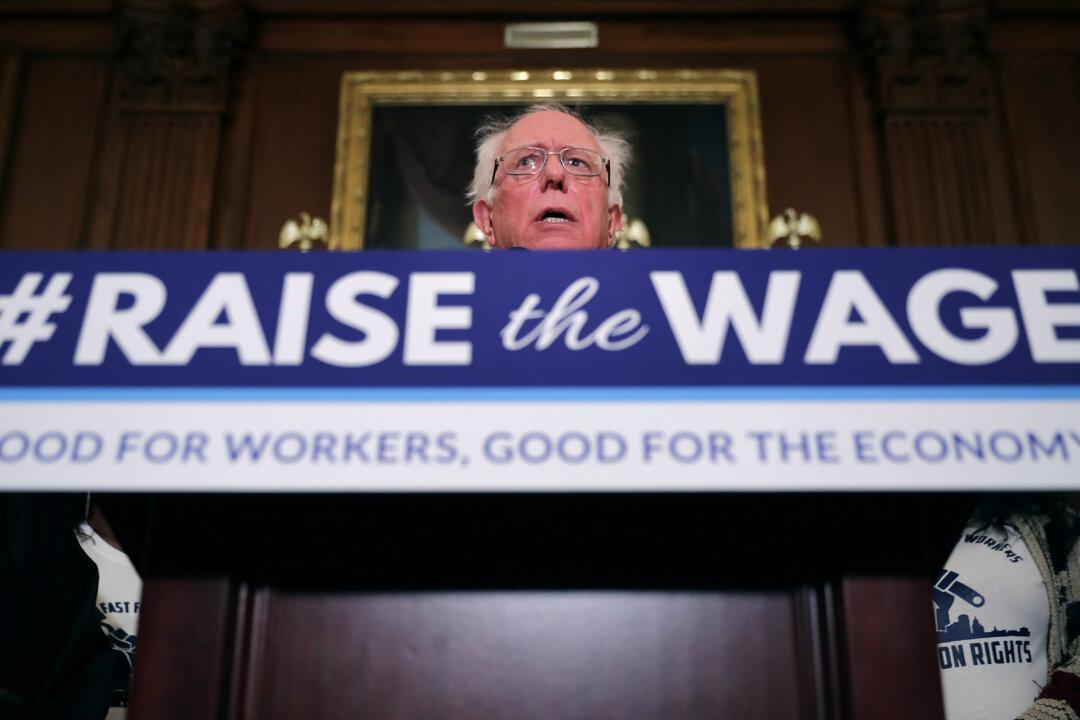The Congressional Budget Office (CBO) released a report this month that shows an increased budget deficit of $54 billion if the minimum wage is increased to $15 nationally, which it says will result in higher unemployment and higher prices for goods and services.
“If enacted at the end of March 2021, the Raise the Wage Act of 2021 would raise the federal minimum wage, in annual increments, to $15 per hour by June 2025 and then adjust it to increase at the same rate as median hourly wages… the cumulative budget deficit over the 2021–2031 period would increase by $54 billion,” the CBO said (pdf).





